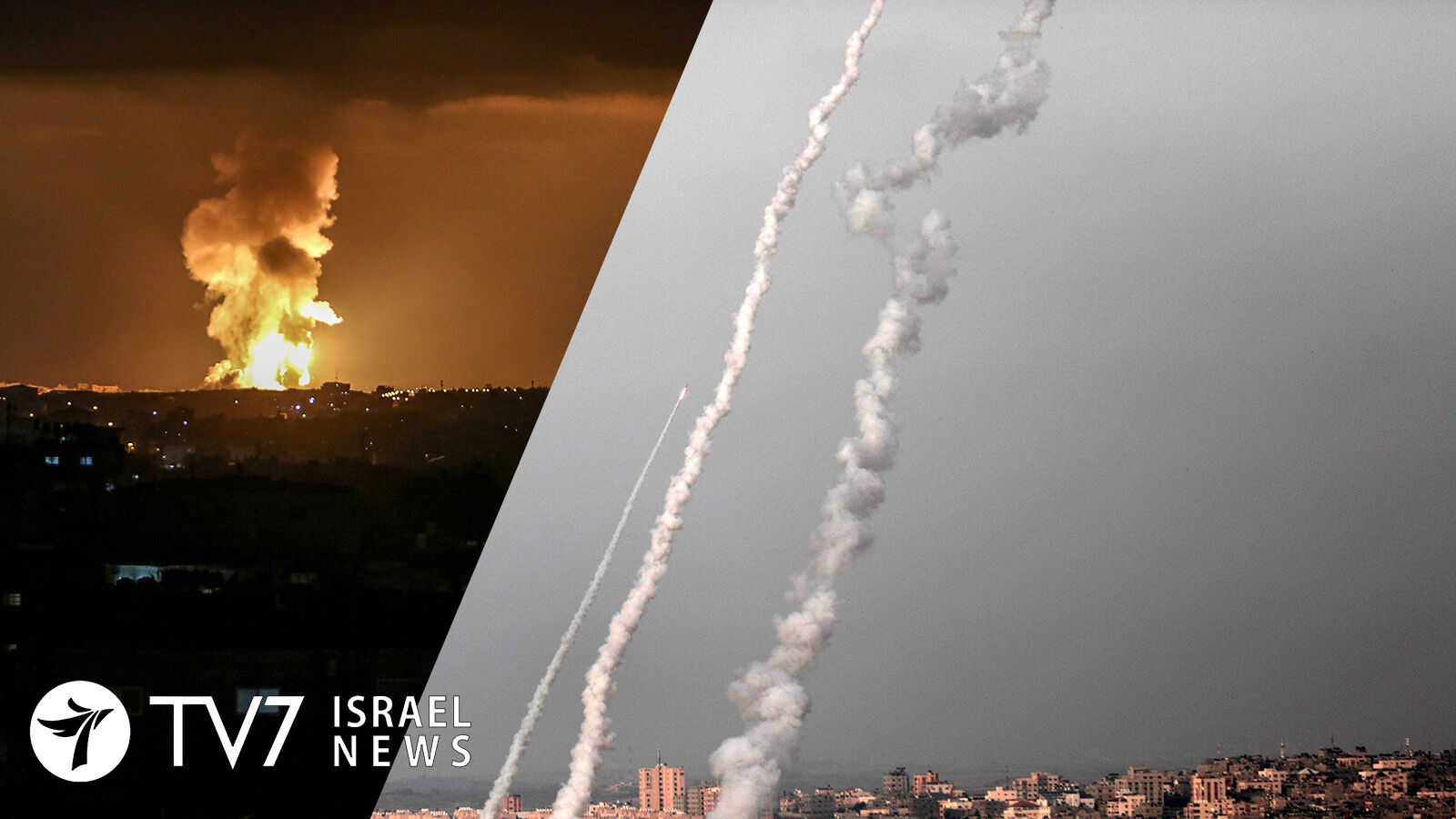Islamist terrorists in the Palestinian enclave fired a missile at civilian communities in Israel early Saturday after months of relative calm in the area.
By Jonathan Hessen and Erin Viner
Air raid sirens blared in the southern city of Ashkelon and communities adjacent to Gaza, forcing residents to seek refuge in bomb shelters within the IDF Home Front Command advisory of just 15-30 seconds.
The incoming projectile was successfully intercepted by the Iron Dome anti-missile system. There were no reported injuries or material damage.
In a retaliatory response, Israel Air Force jets launched strikes on several installations operated by the Islamist Hamas rulers of Gaza. The IDF Spokesperson’s Unit said that the aircraft targeted a weapons manufacturing site located inside of a Hamas military compound, as well as three other military posts.
The Israeli army stressed that it holds the Hamas terrorist organization responsible for all terror activity emanating from the Gaza Strip, a position subsequently echoed by Prime Minister Naftali Bennett during his opening remarks at his weekly cabinet meeting in Jerusalem.
“We attacked and destroyed weapons manufacturing site and several other Hamas targets in Gaza,” he said, underscoring that, “This is the response to the firing of a single rocket from the Gaza Strip which was intercepted by Iron Dome. Unlike in the past we no longer make excuses for the terrorists, neither are we defining them as breakaway factions or electrical mishaps. As far as we are concerned, Hamas is the address.”
The Israeli leader went on to demand a cessation of violent attacks from Gaza.
“This past year has been the quietest in over a decade for the residents of the south,” he pointed out, explaining, “From an average of hundreds of rockets a year, we got it down to 7 rockets, absent casualties.”
Saying that his government of one year had changed Israel’s policy toward Hamas in “a number of dimensions,” he said the defense establishment “immediately stopped the transfer of suitcases of dollars to Hamas and switched from a policy of containment vis-a-vis the firing at Israelis to one of ‘Zero tolerance.’ Alongside this we also changed our approach towards the residents of the Strip and opened up for them the possibility of working in Israel. The average salary of a resident of Gaza is around 800 Shekels (€220/$232) while in Israel it is around NIS 8,000 (€2,200/€2,320). This acts as quite a restraint and also differentiates between Hamas and the (Gazan) residents. We insist on absolute quiet for the residents of Ashkelon, Sderot and the area adjacent to the Gaza Strip; and we must know that for the first time, there is a young generation in the south that has experienced a year quiet.”
Continuing that, “Our goal is safety and quiet lives for the residents of the south as well as preventing the renewed armament of Hamas,” the Israeli Prime Minister emphasized that unlike in the past when “we would buy a temporary quiet but would pay for it with the (enemy’s) armament,, at the moment, the armament process is very slow, the slowest it has been in years because we have closed off the possibility of bringing in weaponry via Rafiah (border-crossing) in cooperation with Egypt and the United States.”
The Israel-Gaza frontier has been relatively calm since May 2021, when Israel and Palestinian terrorists fought an 11-day war.
Although Saturday’s cross-border fire did not appear to signal a wider escalation, violence has risen in the West Bank and in Israel in recent months. Dozens of Palestinian suspects have been captured over the past week as part of the months’ long Operation Waves Breaker, launched after a surge of terror attacks in Israel.
Three armed terrorists were killed in an exchange of gunfire during a joint mission near the West Bank city of Jenin on Friday by IDF, Israeli Security Agency (ISA, also known as the Shin Bet) and Border Police Special Operations forces. Hamas claimed one of the gunmen belonged to its organization, while the other two were claimed by the Iranian-proxy Palestinian Islamic Jihad (PIJ) terror group.
IDF Chief of Staff Lieutenant General Aviv Kochavi noted that the incident was merely one in a long list of engagements as the State of Israel is forced to contend with an unprecedented amount of threats in multiple sectors.
“Think about it: Lebanon, Syria, Judea and Samaria, Gaza, Iran – in each of the places,” the IDF chief said during an address to graduation class of the pre-military Aharai organization, adding, “There is no country in the world that deals with so many enemies and simultaneously operates in each of those arenas in order to thwart the activities of those enemies in order to deter them and prevent them from successfully carrying out their missions.”
